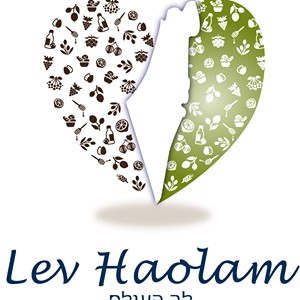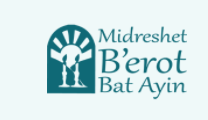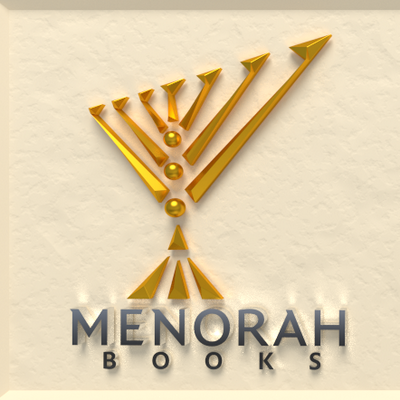Description
Etrog Citron© Peel Powder
2oz
From Israel
RARE
This is True Israel Grown Etrog Powder from the Holy Land Israel. We have been distilling and cultivating Etrog on Rimon Farm in Israel since 2003.
We have produced our exclusive Etrog Hydrosol since 2003, Etrog Essential Oil since 2003, Etrog Seed Oil since 2006, Etrog Handmade Soap since 2009, and Our exclusive Lulav Blend since 2011 and Lulav Salve since 2011, Lulav Soap since 2016 and now we have this amazing yummy powder extract made from from Organic Etrog Peels.
Ideal for baking and culinary delights, deserts, sprinkle on wedding cakes, cosmetic products such creams lotions and salves, serums, soaps, and tinctures. We use this powder in our Lulav soap and Etrog face soap.
About Etrog Citron©
Etrog (plural: etrogim, Hebrew: אֶתְרוֹג) is the yellow citron or Citrus medical vulgaris used by Jewish people during the week-long holiday of Sukkot, as one of the four species. Together with a Lulav, Hadas and Aravah, the etrog is to be taken in each Jewish hand.
Some Scholars say agriculturally Sukkot was the time to gather all your ripen fruits among these were the Etrog. There were so many fruits that instead of making long list verses of the Bible would call this beautiful fruit of the tree פְּרִי עֵץ הָדָר. Israel was abundant as it is today in Fruits. There are so many types of Etrog ie the Citron. See Leviticus 23:40 and examples of beautiful fruits in Nehemiah 8:15.
Citron – Etrog (Citrus medica): Zesty in the aroma like lemon, Etrog is uplifting and is anti-bacterial, anti-inflammatory, anti-oxidant, and analgesic.
“In order for a citron to be kosher, it must be neither be grafted nor hybridized with any other species. Only a few traditional varieties are therefore used. To ensure that no grafting is used, the plantations are kept under strict rabbinical supervision. Thus the reason Etrog Citron© only comes from the Holy Land of Israel. So anyone claiming they sell etrog Citron Essential oil is not the real Etrog Citron© oil.
“The Biblical phrase peri eitz hadar (פְּרִי עֵץ הָדָר) usually refers to the etrog in its original Aramaic Biblical name. Grammatically, the Hebrew phrase is ambiguous; it is typically translated as “fruit of a beautiful tree,” but it can also be read as “a beautiful fruit of a tree.” Etrogs are carefully selected for the performance of the Sukkot holiday rituals.” The word Etrog is an Aramaic word we find in the Hebrew Aramaic Targum. Etrog also became a symbol of Israel’s persistence for the right to exist in modern times.
In the writings of Josephus that a priest was pelted with Etrogim in the Temple because he did something that was extremely offensive by taking the water that was meant to cleanse the altar of sacrifice and poured it on his feet instead, so he was pelted with etrogim and was ran out of the Temple. Why Etrogim? The answer is most likely because it grew in abundance in Israel at that time in the First Century and it was most likely at Sukkot when this occurred when etrogim would have been harvested and used in Temple service.
Soon Etrog becomes the symbol in literature, paintings, etc, to distinguish Jewish people from the Samaritans whom we must not forget that separated from Israel to go and do their own form of worship on Mount Gerizim instead. To see conflict read Ezra 4:1-6 the Samaritans do agree the Hadar is a Citron grown in the Holy Land.
Etrog according to the Sephardic pronunciation in Modern Hebrew pronunciation. The Ashkenazi pronunciation and in Yiddish is esrog or esrig which is closer to Aramaic Hebrew pronunciation. The Hebrew word is thought to derive from the Persian name for the fruit, turung, likely borrowed via Aramaic.
The aroma of Etrog Citron Hadar is both a cold-pressed peel and a steam-distilled essential oil from the fruit and peel from Israel and is zesty, refreshing, and smells both sweet and tart as if sweet-tart green lemons were mingled with sweet oranges, mandarins, and tangerines in a citrus orchard. The fragrance of this unique fruit helps to open a closed heart, heals the broken-hearted and grief, frees the mind from holding guilt.
Etrog refers to the heart, the place of understanding and wisdom.
Palm refers to the backbone, uprightness.
Myrtle corresponds to the eyes, enlightenment.
Willow represents the lips, the service of the lips (prayer).
Etrog — because it is written (Psalms 104: 1): ‘You are clothed in glory and majesty.’ (The word translated as majesty is hadar. In the Torah (Leviticus 23:40), the etrog is called the fruit of the goodly tree. The same Hebrew word, hadar, is used in that context to mean goodly.)
Palm — because it is written (Psalms 92:13): ‘The righteous bloom like a date palm.’
Myrtle — because it is written (Zechariah 1:8): ‘And he stood among the myrtle-trees.’
Willow — because it is written (Psalms 68:5): ‘Extol Him who rides on the clouds [aravot], the Lord is His name.’
One can argue the waving of the lulav was prayer and is a dance for rain. Rain was extremely important for growing crops. We can find prayers for rain when the Lulav is waved in the synagogue or in the sukkah during the day. The prayer for rain is the section of the siddur (prayer book) for waving the lulav.
This is not a way to control the weather because only G-d controls the weather. This is more a dance wave in praise to thank G-d for the blessing of rain to come in advance. Much like waving the loaves of bread at Shavuot is a praise and thanks to G-d for the bounty of the harvest. Through all of these, the themes of Sukkot are played out and interwoven beautifully: redemption, universal peace and brother/ sisterhood, completion.
Constituents of Etrog : Limonene 56%, Terpinene (γ) 18.6%, Myrcene 2.9%, Pinene (α) 2.6%. (not batch specific)
Blends well with citrus oils, Frankincense sacra, Frankincense caterri, Sandalwood, Rose of Sharon, Cistus Rose, Juniper Berry, Rose, Lavender and Cassia, Myrtle, Myrrh, and Cedarwood atlas.
See our listing Lulav essential oils blend here
See our listing for Lulav salve here























